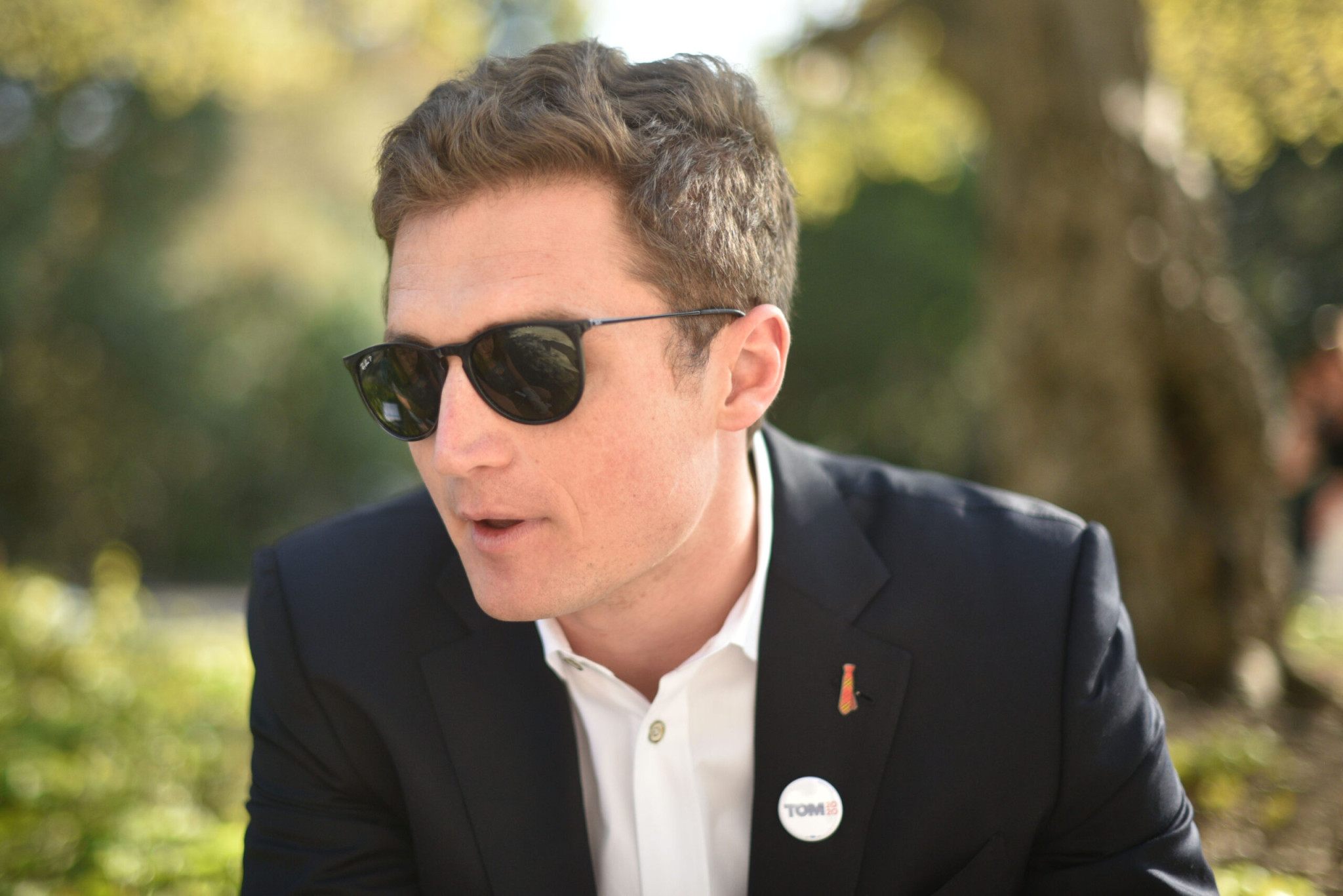“I’m coming to tell my dad’s story and why we believe in the values and issues that we’re running on, and talk about his campaign for president,” said 31 year old Sam Steyer on February 26, before his campaign speech for his father and former democratic presidential candidate, Tom Steyer, at the University of California (UC) Berkeley. Three days later, Steyer dropped out of the race.
Yet, claiming victory at the end of the election was not the entire objective. The campaign trail is a meaningful, strenuous, and educational experience, according to Steyer. Steyer was the surrogate speaker for his father’s presidential campaign. He described his position as “someone who does exactly what I’m doing right now, which is going to speaking events and meetings to talk to voters, for the kind of stuff we might send my dad to.” He elaborated that with his father’s busy schedule, a surrogate speaker is a way to reach out to voters in a more efficient manner.
In the Wheeler Auditorium of UC Berkeley, Steyer came as a guest lecturer to inform students about his father’s proposals and policies, and also what it is like to be involved in a campaign. His audience of college students, Steyer claimed, is the generation who we should be looking towards for leadership.
Steyer said that his intention was to explain “how important college students and high school students are in our democracy and how much of an impact they can have.”
Most high school students can only imagine being related to a presidential candidate. “Of course it can be a little surreal,” explained Steyer, adding, “You see your dad on TV or billboards for the debate stage.”
Although Steyer played a large role in his father’s campaign, he also is very independently successful as a renewable energy entrepreneur. With both an undergraduate degree and a master’s degree in applied math, Steyer prefers the subjects of math, software, and technology over dedicating his professional life to politics. “Before the campaign, I was a co-founder of a small company called Station A, that builds software to help companies that want to get 100 percent of their electricity from renewable energy,” Steyer informed. Because of the business and demand of the campaign, he is determined to continue work in his available time now that it’s over. “I would love to do something that is public service and social justice oriented, and that is about as much as I know,” Steyer said.
While still running, Tom Steyer was well known for being a white, male, billionaire with a comparatively inferior experience in politics to other candidates. In response to a UC Berkeley student’s question regarding this, Sam Steyer acknowledged his father’s reputation.
He added that their campaign was intentionally diverse with 50 percent women, 50 percent people of color, and 30 percent people identifying as LGBTQ+. Steyer also countered the idea that his dad’s campaign was an abuse of power by claiming that buying into the election isn’t nearly as unethical as raising money for a campaign through donations from places like the NRA.
During the lecture, one of his main focuses was voter involvement, especially for millennials and the youth of Generation Z. Subjects like climate change and gun violence are priorities that should be addressed by the to-be Democratic candidate.
Steyer believes that the youth of America have a direct connection to these issues, and therefore they should be active in the campaign. “Gen Z is not the progressive movement or the democratic party of the future, they are the progressive movement or the democratic party of today,” said Steyer.





